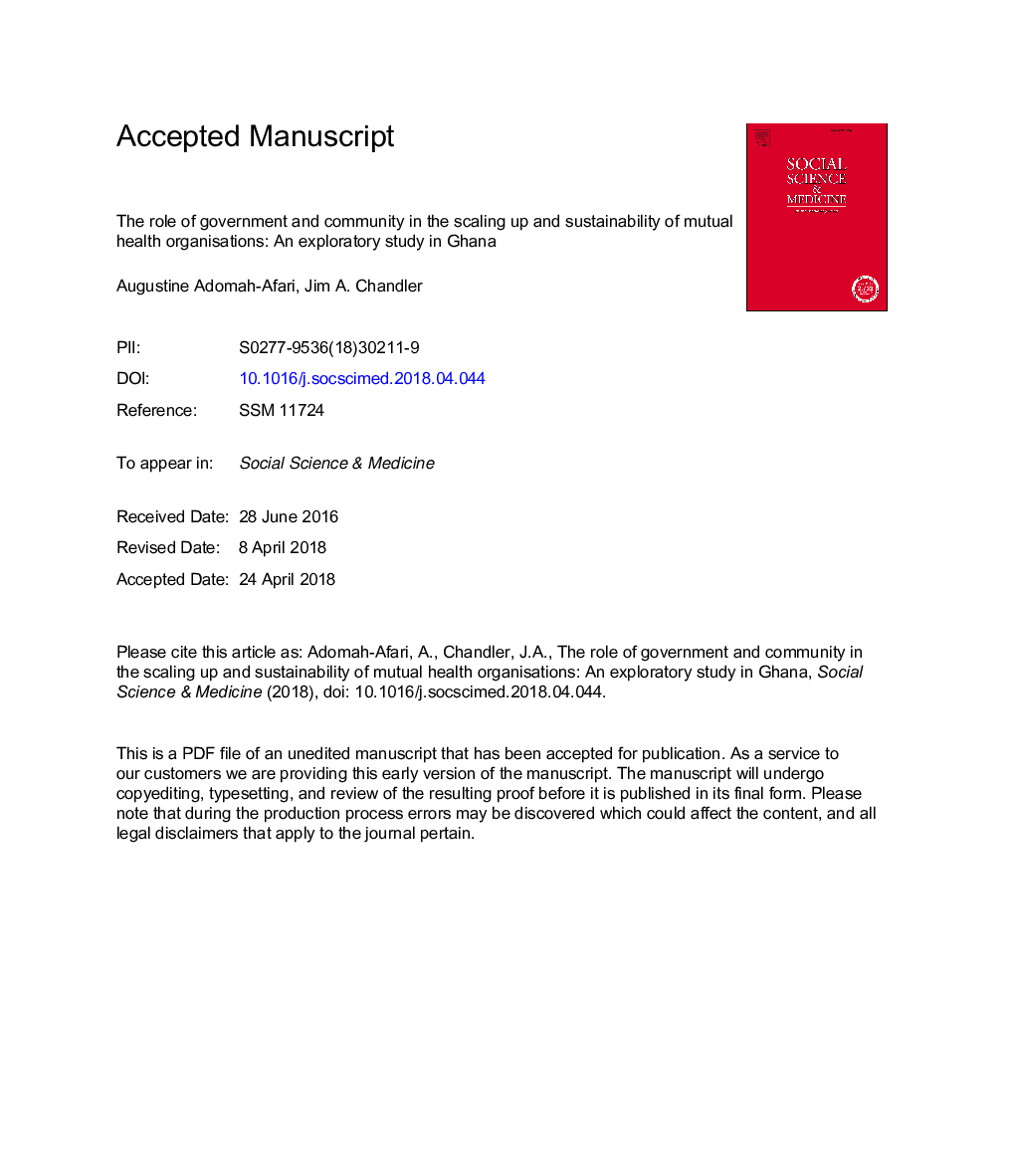| Article ID | Journal | Published Year | Pages | File Type |
|---|---|---|---|---|
| 7327718 | Social Science & Medicine | 2018 | 56 Pages |
Abstract
Governments of many developing countries, including those in Sub-Saharan Africa have embraced the community-based health insurance schemes phenomenon under the health sector reforms with optimism. Ghana has introduced a National Health Insurance Scheme, which is amalgamated with social health insurance and community-based health insurance schemes. The aim of this study was to explore the role of the Ghana government and community in the scaling-up and sustainability of mutual health organisations. Four district mutual health insurance schemes were selected using geographical locations, among other criteria, as case studies. Data were gathered through interviews and documentary/literature review. The findings of the empirical study were analysed and interpreted using social policy and community field theories. The findings of the paper suggest that in order to ensure their effective scaling up and maintain overall sustainability, there is the need for some form of government regulation and subsidy. However, since government regulation cannot work without the acceptance of the community, there is the need to integrate these actors in policy formulation.
Related Topics
Health Sciences
Medicine and Dentistry
Public Health and Health Policy
Authors
Augustine Adomah-Afari, Jim A. Chandler,
